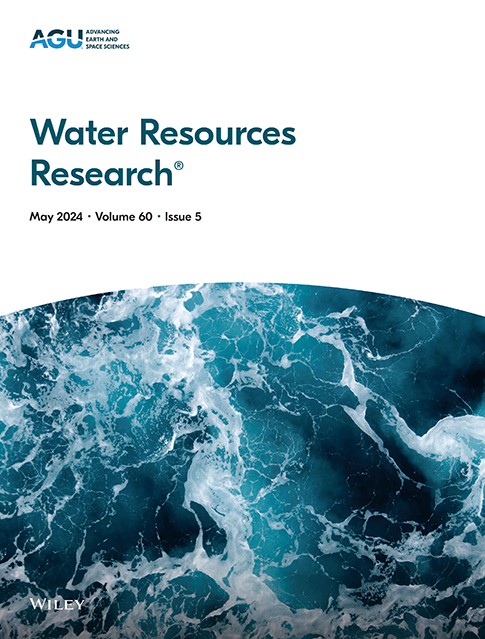The Importance of Heat Storage for Estimating Lake Evaporation on Different Time Scales: Insights From a Large Shallow Subtropical Lake
IF 4.6
1区 地球科学
Q2 ENVIRONMENTAL SCIENCES
引用次数: 0
Abstract
The change in heat storage (Gc) is an essential component of a lake's energy balance, and its importance for lake evaporation (Ew) has been widely recognized. However, the effect of Gc on Ew exhibits diversity across time dimensions. The controls on Gc and the effects of Gc on Ew estimates at different time scales remain largely unexplored. To address these gaps, we identified the primary controls on Gc at an eddy covariance site in a large shallow lake (Lake Taihu) and quantified the role of Gc in estimating Ew on three (hourly, daily, and monthly) time scales based on two energy balance‐based Ew models. Our results indicate that the diurnal variation of Gc is dominated by net radiation and peaks around noon, while the seasonal variation of Gc is mainly controlled by air temperature and peaks in spring. In contrast, the daily variation of Gc is subjective to a confluence of factors—net radiation, wind speed, and relative humidity—displaying more stochasticity than that on the other two time scales. We also found that the importance of Gc for Ew estimates decreases as the time scale extends. Compared to the two models disregarding Gc, considering the effect of Gc enhances the average Kling‐Gupta efficiency (KGE) values of the two models by 1.33, 0.42, and 0.08 on the three time scales, respectively. Overall, this study highlights the importance of time scales in evaluating the effect of Gc on Ew estimates.储热在不同时间尺度上估算湖泊蒸发量的重要性——来自一个大型浅亚热带湖泊的启示
储热(Gc)的变化是湖泊能量平衡的重要组成部分,其对湖泊蒸发(Ew)的重要性已得到广泛认可。然而,Gc对Ew的影响在时间维度上表现出多样性。在不同的时间尺度上,对Gc的控制以及Gc对Ew估计的影响在很大程度上仍未被探索。为了解决这些差距,我们确定了大型浅水湖(太湖)涡流协方差点Gc的主要控制因素,并基于两个基于能量平衡的Ew模型,量化了Gc在三个(每小时、每天和每月)时间尺度上估计Ew中的作用。结果表明,Gc的日变化主要受净辐射和中午前后的峰值控制,而Gc的季节变化主要受气温和春季峰值控制。相比之下,Gc的每日变化是主观的,因为净辐射、风速和相对湿度等因素的综合作用比其他两个时间尺度上的变化更具随机性。我们还发现,Gc对Ew估计的重要性随着时间尺度的延长而降低。与不考虑Gc的两个模型相比,考虑Gc的影响,两个模型在三个时间尺度上的平均Kling‐Gupta效率(KGE)值分别提高了1.33、0.42和0.08。总的来说,这项研究强调了时间尺度在评估Gc对Ew估计的影响方面的重要性。
本文章由计算机程序翻译,如有差异,请以英文原文为准。
求助全文
约1分钟内获得全文
求助全文
来源期刊

Water Resources Research
环境科学-湖沼学
CiteScore
8.80
自引率
13.00%
发文量
599
审稿时长
3.5 months
期刊介绍:
Water Resources Research (WRR) is an interdisciplinary journal that focuses on hydrology and water resources. It publishes original research in the natural and social sciences of water. It emphasizes the role of water in the Earth system, including physical, chemical, biological, and ecological processes in water resources research and management, including social, policy, and public health implications. It encompasses observational, experimental, theoretical, analytical, numerical, and data-driven approaches that advance the science of water and its management. Submissions are evaluated for their novelty, accuracy, significance, and broader implications of the findings.
 求助内容:
求助内容: 应助结果提醒方式:
应助结果提醒方式:


